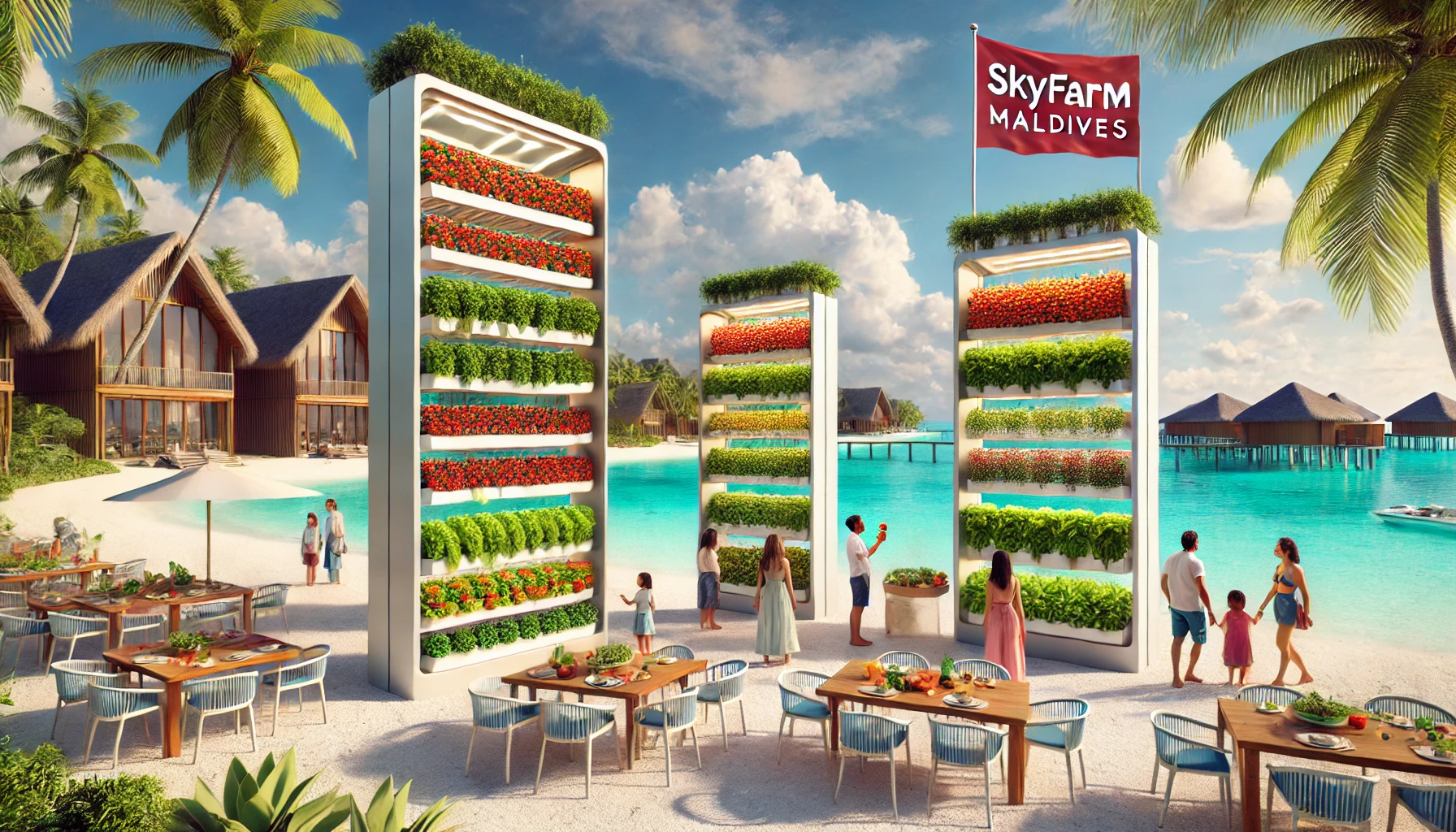The Advantages of Sky Farm’s Vertical Farming
Optimized Crop Production
Efficient Use of Resources
Sky Farm’s vertical design maximizes space, allowing significantly higher production per square foot than traditional methods. By utilizing stacked layers, the farm turns limited land into a productivity powerhouse, boosting overall yields and profitability.
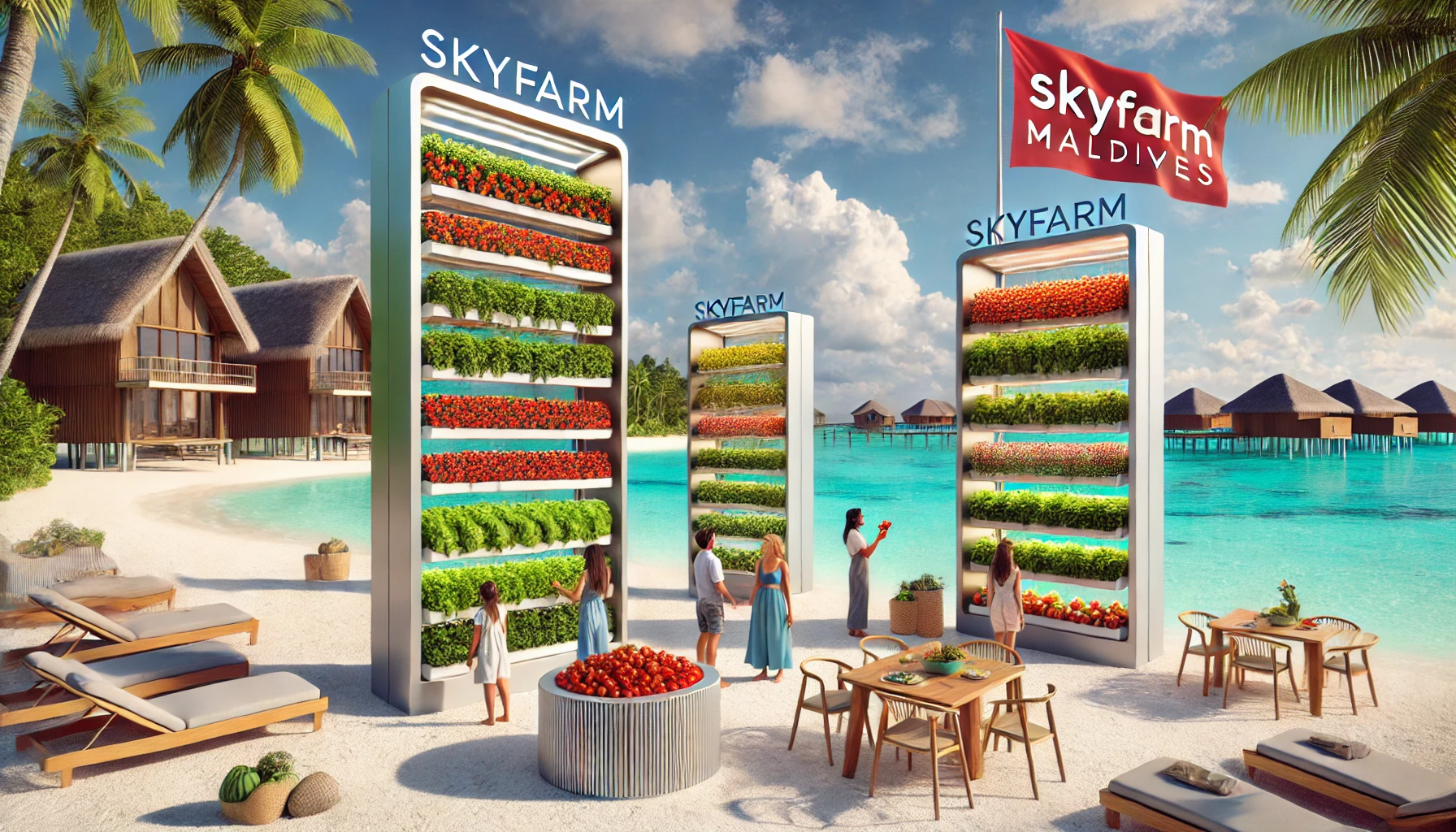
Reduced Transportation Costs
By positioning Sky Farm near urban centers in the Maldives, the farm cuts down on the need for long-haul transportation. This proximity to local markets reduces transportation costs and significantly lowers the carbon footprint associated with produce distribution. Not only does this make fresh, sustainable food more accessible, but it also supports a greener, more efficient food supply chain.
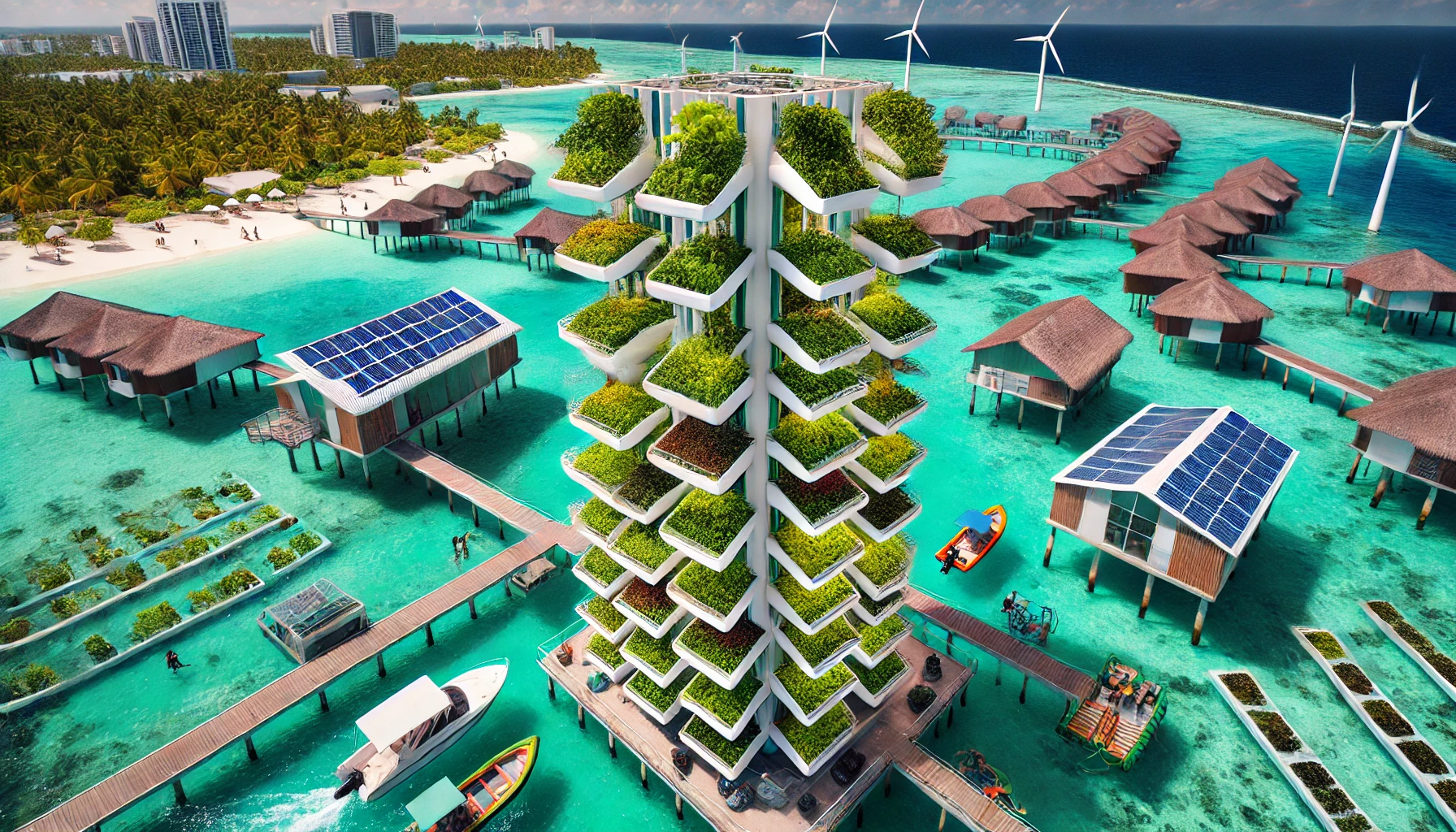
Lower Water & Energy Usage
At Sky Farm, hydroponic systems are used to recirculate water, significantly reducing water consumption compared to traditional soil-based farming. This water efficiency not only conserves a valuable resource but also leads to substantial cost savings. Furthermore, the integration of renewable energy sources and energy-efficient designs helps minimize energy costs, making Sky Farm a model of sustainability and cost-effectiveness in modern agriculture.

Consistency & Reliability of Production
At Sky Farm, the ability to control key environmental factors such as light, temperature, and humidity ensures that crop production is less reliant on seasonal changes or unpredictable weather. This level of control guarantees a consistent, year-round production cycle, providing stable income streams and minimizing the risk of crop failures due to adverse weather conditions. Sky Farm’s reliability makes it a dependable source of fresh produce, regardless of external factors.
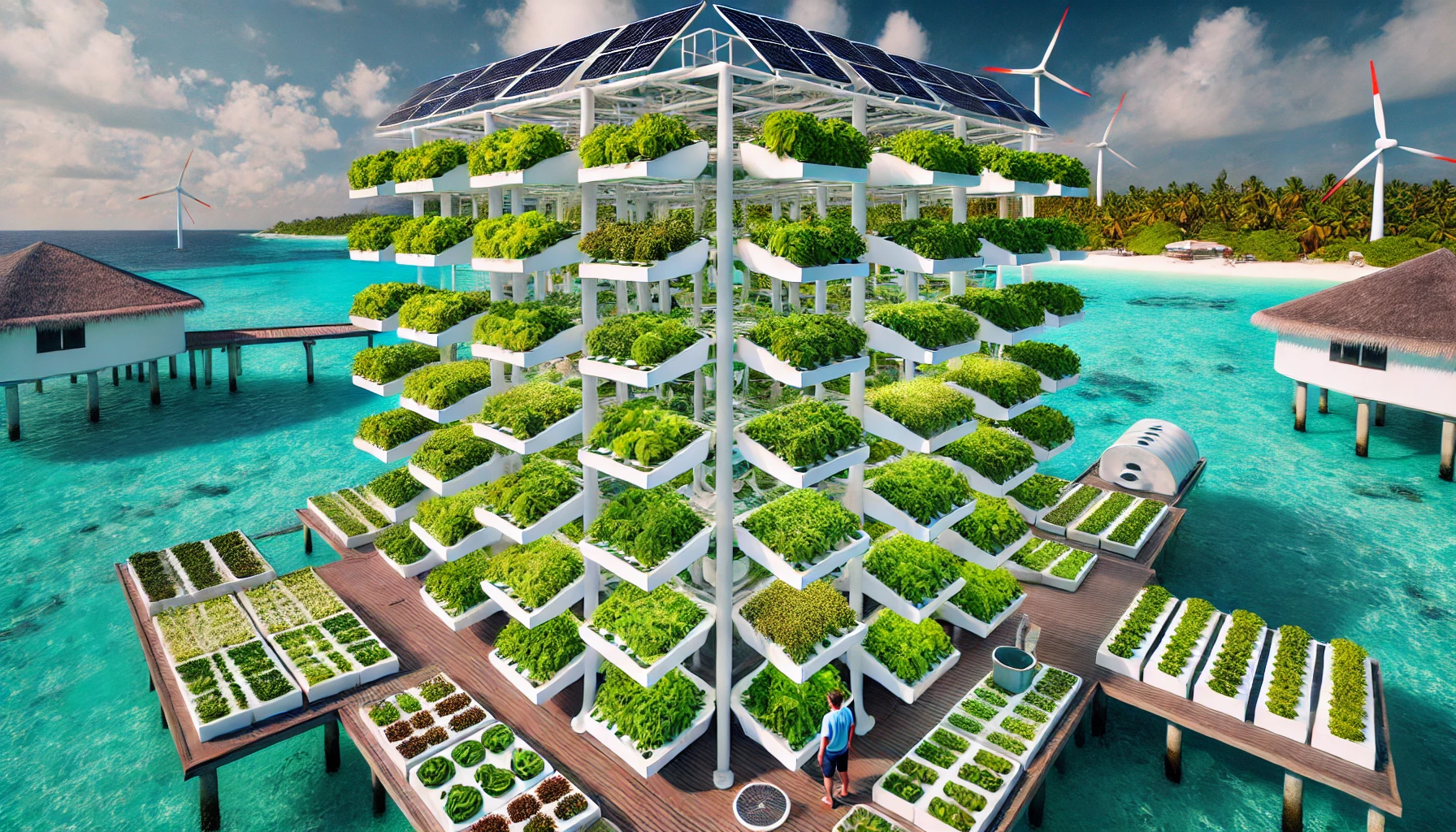
Premium Product Pricing
The organic, sustainably grown produce from Sky Farm often commands a higher market price. With growing consumer demand for environmentally friendly and health-conscious products, people are increasingly willing to pay a premium. This trend allows Sky Farm to enjoy significantly enhanced profit margins while providing fresh, high-quality produce that meets the needs of conscious consumers.
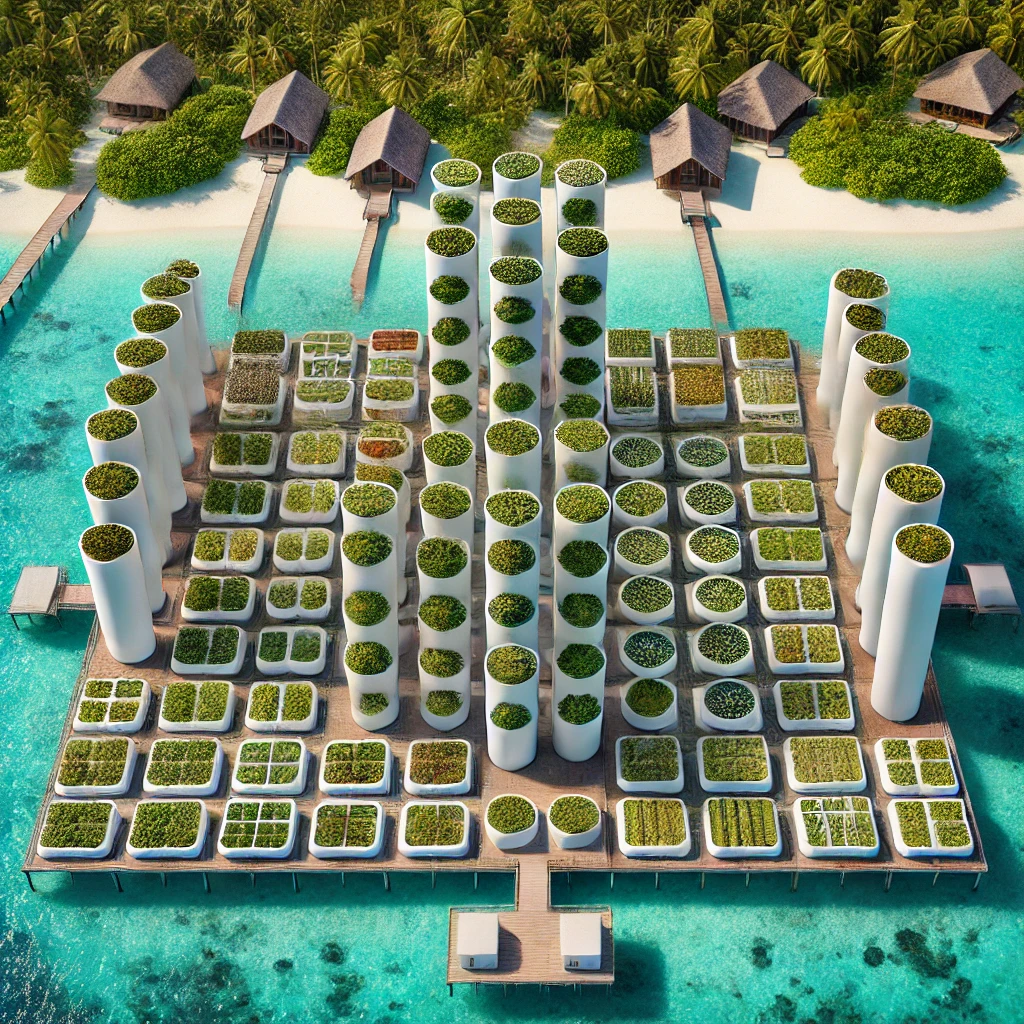
Reduced Pesticide Use
By operating in a controlled indoor environment, Sky Farm minimizes the risk of pests and diseases, significantly reducing the need for pesticides and herbicides. This results in savings on chemicals while meeting the rising consumer demand for organic produce. As a result, Sky Farm benefits from both lower operational costs and the ability to offer healthier, chemical-free products, further boosting economic returns.
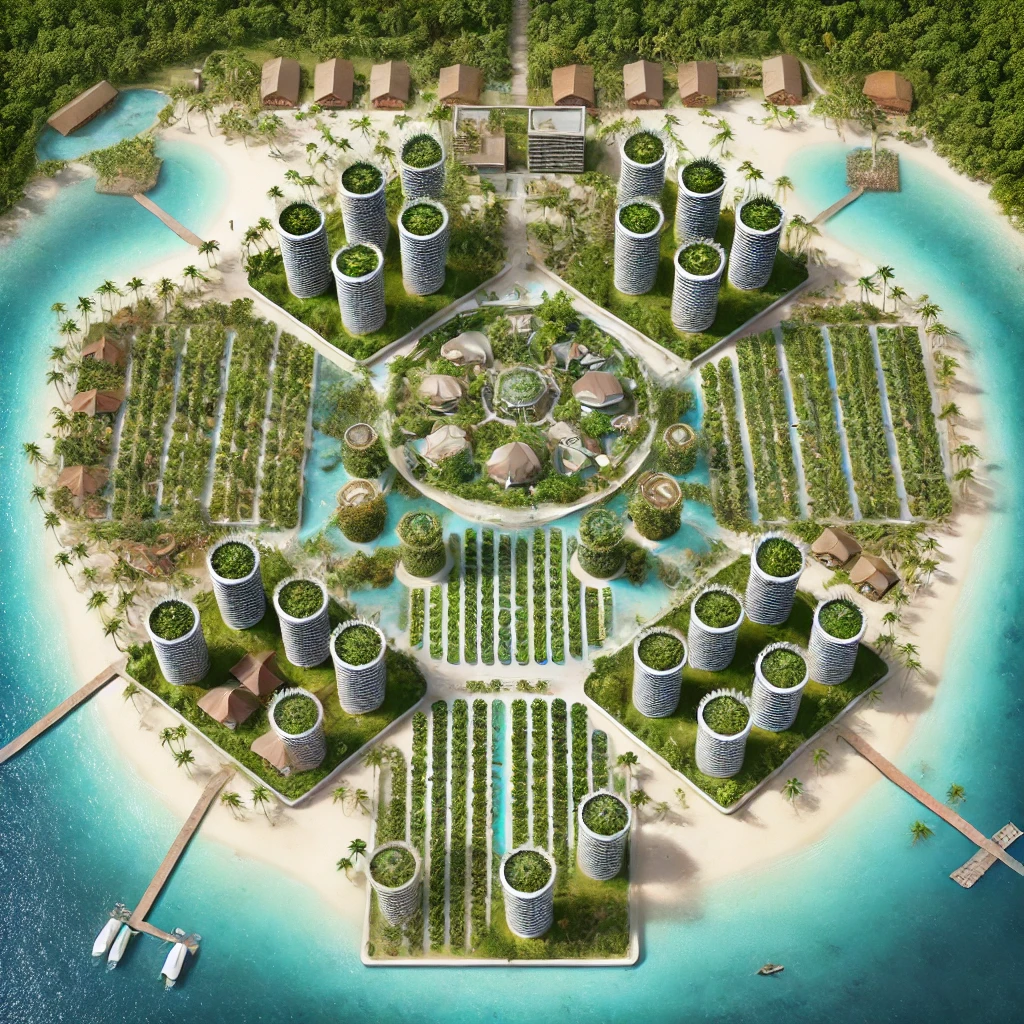
Scalability
The modular design of vertical farming makes expansion straightforward and cost-effective. As demand grows, Sky Farm can scale operations both vertically and horizontally, without the need for large land acquisitions typical of traditional farming. This flexibility allows for rapid growth and the ability to adapt to market demands while keeping costs down.
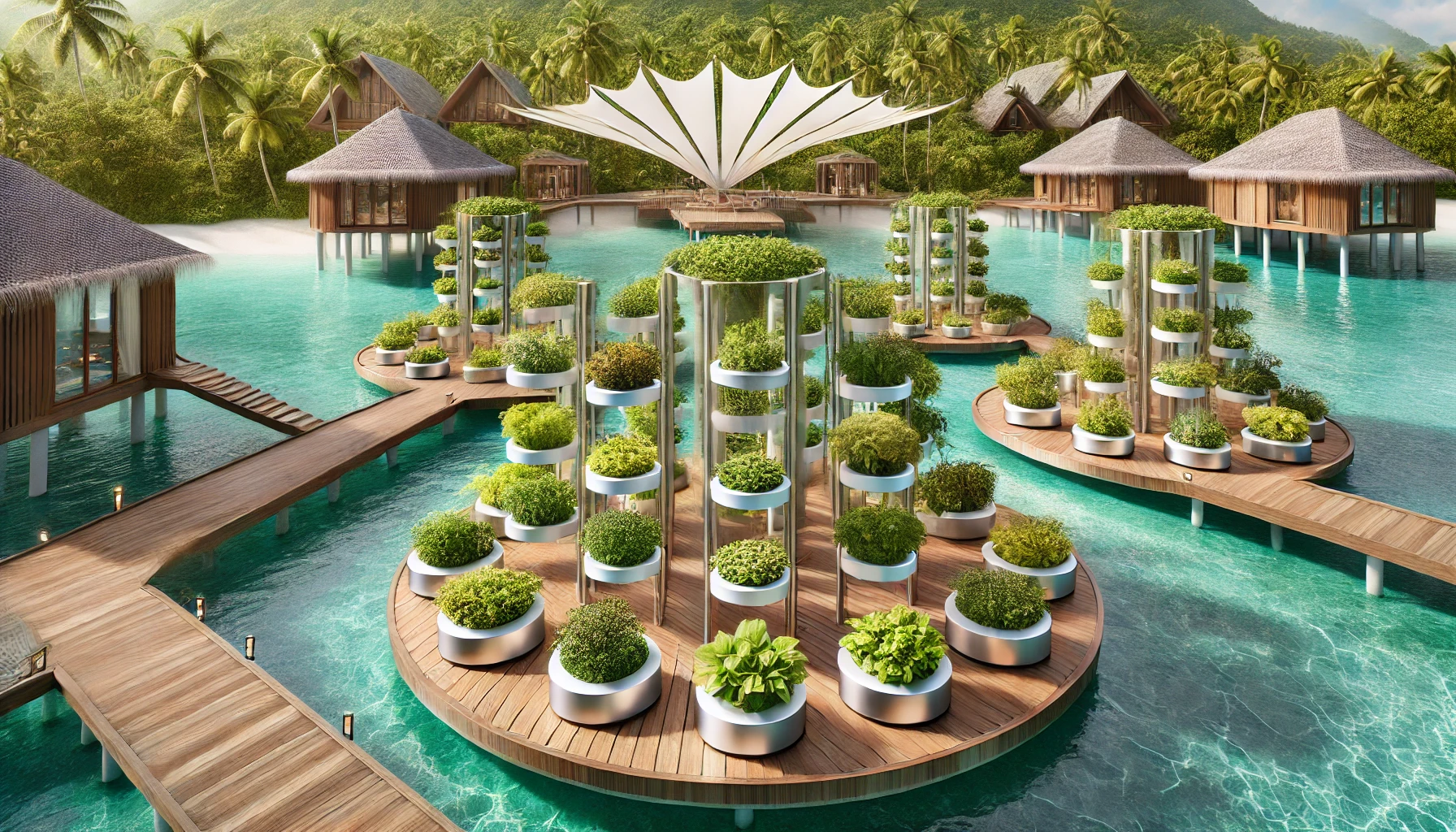
Technological Advancements
Investing in advanced technologies like AI and IoT for monitoring plant health and optimizing growing conditions brings significant efficiencies and cost savings over time. These technologies help improve yields, reduce waste, and streamline farm management. By leveraging these innovations, Sky Farm not only champions sustainable agriculture but also ensures its economic viability and growth potential. This forward-thinking approach positions Sky Farm as a compelling model for the future of agriculture.
